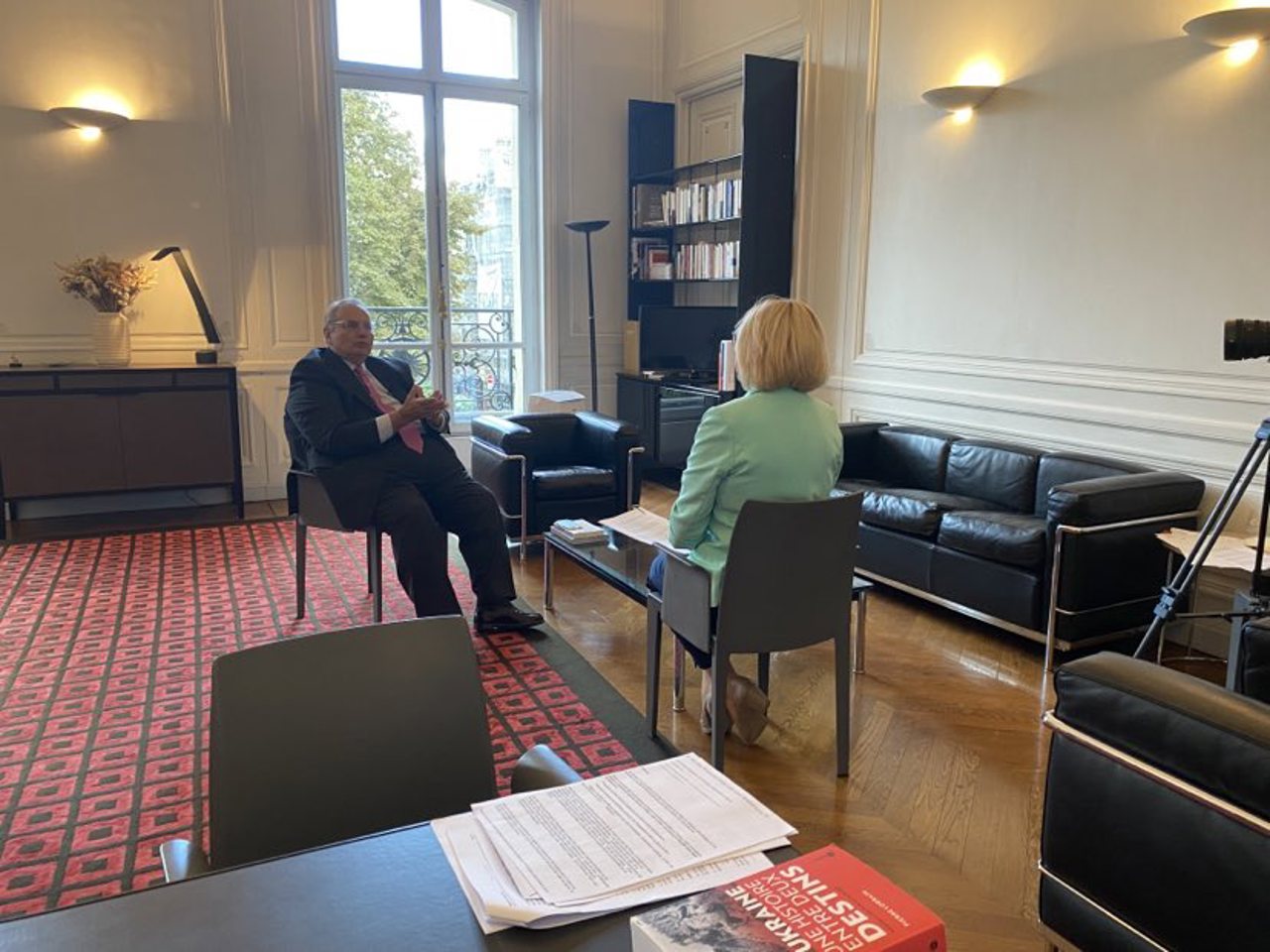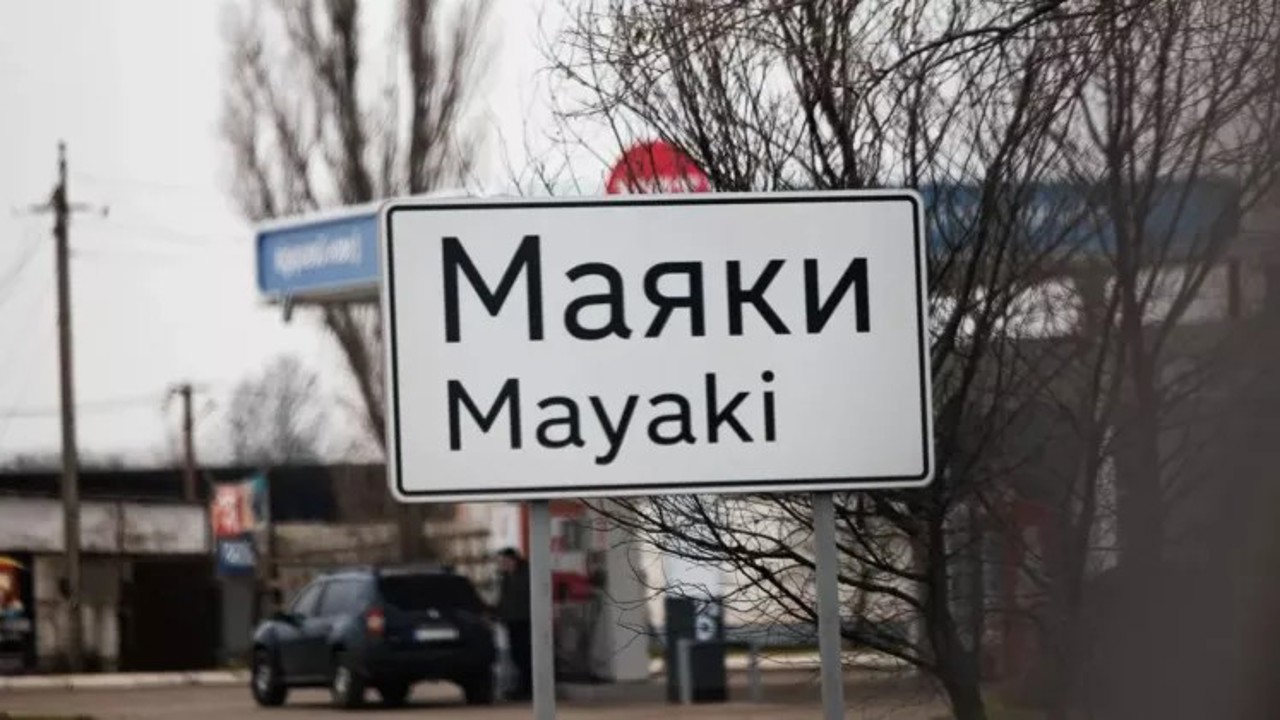Jean-Louis Bourlanges, for EUROPEAN VECTOR: At the end, everyone should "be in the boat", at the end of the day we should all be together, but no one knows how long the day will last
The statements made by French President Emmanuel Macron from various forums on the possible enlargement of the European Union in France also mean concrete actions to analyse the feasibility of partners for this process. On the one hand, it is a question of the readiness of countries with candidate status, such as those in the Balkans, but also Ukraine and the Republic of Moldova, and on the other, of the ability to keep the European institutions functional. In July, Jean-Louis Bourlanges, chairman of the Foreign Policy Committee, presented an extensive report on this issue to the French National Assembly. Journalist Ludmila Barba spoke to the French official in the EUROPEAN VECTOR. Below is their dialogue.

Jean-Louis Bourlanges: We have proposed a method for EU enlargement taking into account a double reality. First, we have to move quickly, because several countries, such as those in the Balkans, cannot wait long, they are subject to the appetite coming from Russia, Turkey and China, and we cannot leave them without protection, without integration at the door of the Union. Secondly, this speed is not possible because not all the countries are ready, they have not completed the process of democratisation and the fight against corruption, on the one hand.
On the other hand, there is the problem of Ukraine, which we cannot integrate because the war is dragging on. Indirectly, the problem of Moldova is put in the same terms - the Republic of Moldova with Transnistria cannot join until it solves the problem with Russia. I also propose that we make accession gradual. This means that, since the countries are committed to the fundamental principles of the EU, we must propose to each of them a tailor-made path, in line with the integration of EU policies, which are immediately achievable. In this way, we will take into account the requirement of urgency, without imposing on the EU the risk of dislocation, of disintegration, which will obviously be annoying.
Ludmila Barba: In the early 2000s, when the European Union was planning its new and biggest enlargement, countries like Ukraine and Moldova were seen only as a "buffer zone" between Russia and the West. Even after these two countries and Georgia signed association agreements, European officials argue that an eventual enlargement may take place no earlier than 2050. What factors led to the change in the EU's position?
Jean-Louis Bourlanges: The position changed only because the countries in question, Moldova and Ukraine, wanted EU membership as an early prospect. We had long considered that countries like Moldova, Ukraine, Georgia, other countries, were a buffer zone between the West and Russia and that they should have a double friendly neighbourhood: with Russia and the EU. This has come to an end. Putin's decision of aggression has changed things, now we have a clear line dividing Europe in two: those who are on Russia's side and under Russia's control, e.g. Belarus, and those who are drawn towards the EU. We, too, must learn lessons from this situation and respond in time and by appropriate means to this call for rapprochement and integration of this peripheral Europe with the EU centre.
Ludmila Barbă: How ready do you think the Republic of Moldova is for an eventual launch of EU accession negotiations?
Jean-Louis Bourlanges: I have the impression that the President of the Republic of Moldova and his government are making enormous efforts to fight corruption, develop democratic institutions and modernise the country. We encourage these efforts and congratulate you on your determination. Now, there is a particular situation in the Republic of Moldova because of Transnistria, a very difficult situation, with a Russian-speaking minority that does not seem to share the same aspirations as the rest of Moldovans.
And since this population lives between Ukraine and the Republic of Moldova, we believe that it will not be possible for Moldova, like Ukraine, to join until the situation with Russia regarding the war with Ukraine has stabilised. It is a war and, in effect, it is what is pushing towards accession in time, but at the same time preventing accession from taking place as quickly as we would like. Our concern must be to bring the war in Ukraine to an end as quickly as possible, but this depends on who has aggressed against Ukraine, that is to say the Russian President and the Russian Government.
Ludmila Barba: At the end of August, French President Emmanuel Macron said that the European Union cannot expand as long as it does not reform internally so that it remains functional. On the other hand, the Paris leader said the EU should move towards a "multi-speed Europe" if it wants to integrate new countries like Moldova and Ukraine.
Jean-Louis Bourlanges: The multi-speed union is nothing new. We have always done that, for example, look at Europe, not all EU members are in the Eurozone, but they all have the vocation to join the Eurozone when they are in a position to do so. This is the meaning of the method I propose: let's take all the countries and see the part of the European policy that today is able to integrate them and let's make this part of the European programme happen.
So I am talking about "sur mesure" - when we go to the tailor we take either "prêt à porté" (ready to wear) or "sur mesure" (made to measure). What I propose for countries like yours is "sur mesure" because we have to adapt. But my idea is that, at the end of the day, everyone is "in the boat", everyone is equal, as they say in Brussels, at the end of the day we all have to be together, but nobody knows how long the day will last.
Translation by Iurie Tataru



